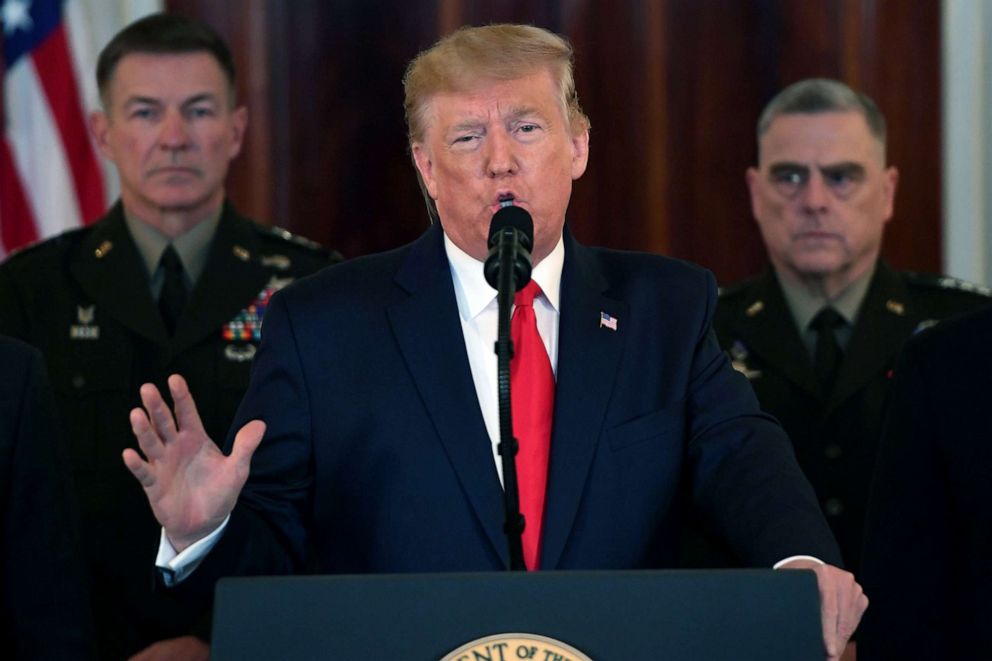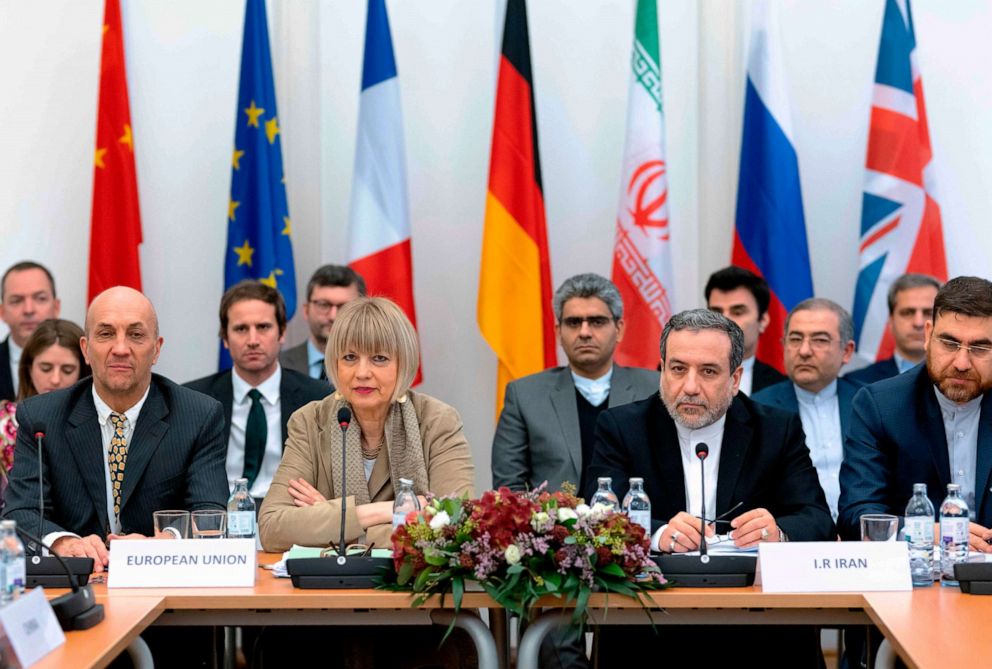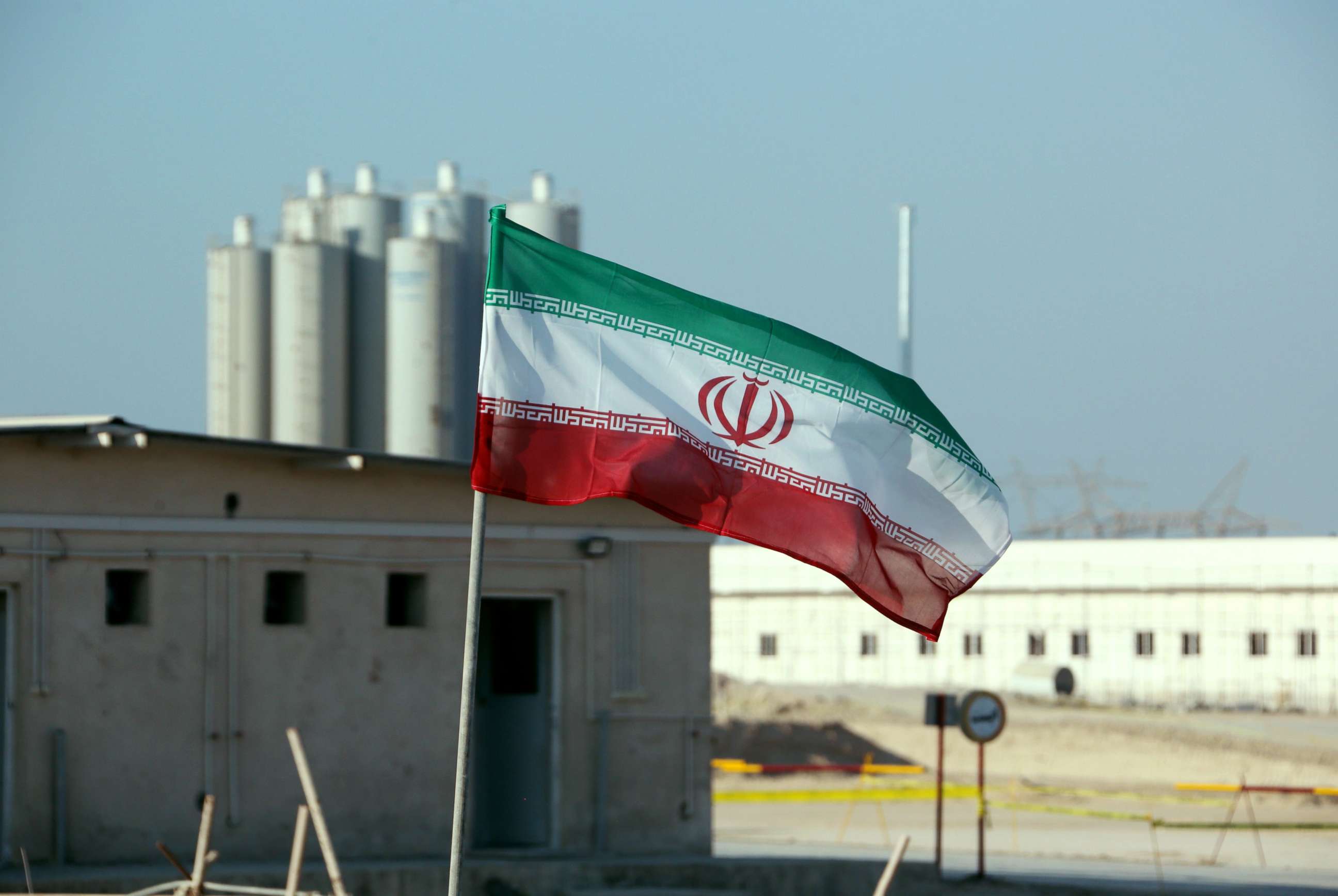What's behind the latest European bid to save the Iran nuclear deal and how it could end up killing it
The E3 foreign ministers triggered the dispute mechanism on Tuesday.
While the European powers hope they have found an avenue to fix the Iran nuclear deal, it may actually spell its end.
France, Germany and the United Kingdom filed a formal complaint within the nuclear agreement on Tuesday to force its remaining parties to convene and discuss Iran's breaches of its commitments since last May. The step, known as the dispute mechanism, is meant to resolve differences within the deal when one party believes another is not meeting its commitments.
If there's no resolution, it could lead to United Nations sanctions on Iran resuming as quickly as 65 days from now. The Trump administration welcomed the announcement, hoping that the increased political pressure of Tuesday's move will drive Iran to the negotiating table. But critics say it could instead accelerate the end of the nuclear deal and push Iran to abandon its last constraints -- the international inspections and its commitment under the Treaty on the Non-Proliferation of Nuclear Weapons not to build a nuclear bomb.
All of that leaves the road ahead very unclear. Iran said last week it will no longer abide by the agreement's operational restraints on its nuclear program and President Donald Trump called for Europe, Russia and China to abandon the deal and join him in pressuring Iran to negotiate a new, more comprehensive agreement -- something that Iran has said it will not do and one that critics say was never feasible.
The president seemed to have at least one proponent: British Prime Minister Boris Johnson told the BBC Tuesday that he understands the Trump administration sees the nuclear deal as flawed, so, "If we're going to get rid of it, let's replace it, and let's replace it with the Trump deal."

The original deal, formally known as the Joint Comprehensive Plan of Action, or JCPOA, lifted U.N., U.S. and European sanctions on Iran in exchange for Iran agreeing to limits on and inspections of its nuclear program. Trump withdrew the U.S. from the deal in May 2018 and reimposed crippling U.S. sanctions in what his administration calls a "maximum pressure" campaign. Last April, he ended waivers that allowed countries to purchase Iranian oil, the government's largest source of revenue, and has targeted its other industries with economic penalties too.
In the face of that U.S exit, Iran urged Europe to find a way around U.S. sanctions and ensure economic activity with Tehran could continue. European countries developed a trade channel known as INSTEX to keep business flowing, but fearful of U.S. sanctions, most businesses fled the Iranian market.
The European powers said they had done their part, but unsatisfied, Iran has moved -- step by step -- out of the JCPOA since last May, on the one-year anniversary of Trump's withdrawal.
It has now breached the 300 kg cap on enriched uranium and the 3.67% limit on enrichment levels, for example -- caps that Tehran was supposed to abide by for 15 years. On Jan. 5, the Iranian government announced its "fifth and final" step, to disregard the 5,060 limit on the number of centrifuges, although it didn't specify how many it would install. More importantly, the statement said Iran would no longer abide by any operational constraints on its nuclear program.

After months of warning Iran to return to compliance, that announcement was apparently a step too far for the deal's European signatories. The French, German and British, or E3, foreign ministers informed the European Union, which oversees the deal's implementation, that they were triggering the dispute mechanism -- again condemning U.S. withdrawal but saying it does not give Iran grounds to breach its commitments.
"We do this in good faith with the overarching objective of preserving the JCPoA and in the sincere hope of finding a way forward to resolve the impasse through constructive diplomatic dialogue, while preserving the agreement and remaining within its framework," the three foreign ministers said in a joint statement, adding explicitly that they "are not joining a campaign to implement maximum pressure against Iran."
Under the deal, the parties now have 15 days to resolve the dispute, although they can give themselves more time. If there's no resolution, the dispute can be brought to the level of the signatories' foreign ministers, giving them an additional 15 days to find a solution or again extend for more time. At the same time, if those two groups are stuck, an advisory board can be convened -- one person chosen by Iran, one by the E3, and one independently -- to propose a resolution.
The Joint Commission would have five days to consider the advisory board's recommendation, but if after this 35-day process there's still no resolution, the issue is punted to the U.N. Security Council. That body would have 30 days to study the dispute and vote to keep sanctions lifted, and if not, they are automatically restored -- 65 days after the process began.

The Trump administration "fully support(s) the decision" and "believe(s) further diplomatic and economic pressure is warranted by nations," a State Department spokesperson told ABC News. "The time is now to end Iran's extortion."
But analysts say while the E3 statement makes clear they hope to keep the deal alive, and they appear to be trying to use the threat of U.N. sanctions to get Iran to negotiate, their move could backfire, accelerating the deal's demise.
U.N. sanctions "snapback could exhaust whatever leverage Europe retains without producing any gains; and closing the door on Europe's ability to even mediate tensions between Iran & the U.S.," according to Ali Vaez, director of the Iran Project at the International Crisis Group and a professor at Georgetown University.
"By triggering the (dispute resolution mechanism), the E3 might provoke a crisis that they claim they are trying to prevent unless the time and space created by intense diplomatic engagement is used to provide Iran with some economic reprieve as means of returning it into JCPOA compliance," he tweeted.
Iran was dismissive of the move on Tuesday. Its foreign ministry spokesperson Abbas Mousavi said Iran had already triggered the dispute mechanism, even though it has never formally done so, and said "no new situation" had been created, according to the state-run Islamic Republic News Agency.
Despite Trump's call for a new deal and Johnson's seeming support, Mousavi again blamed the United States' "illegal withdrawal" and "any violation of the commitment, bad intention, and unconstructive measures" for the current crisis.




